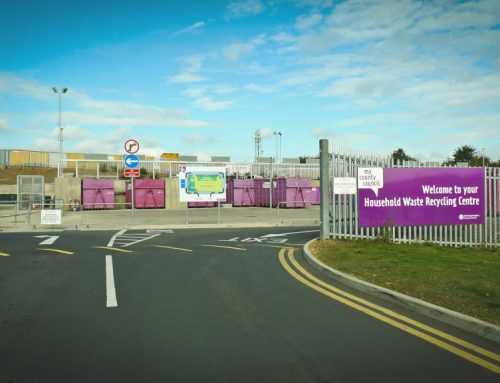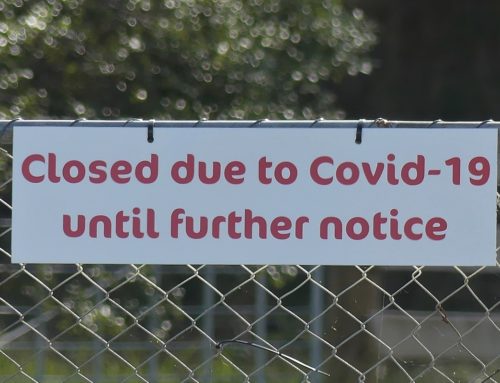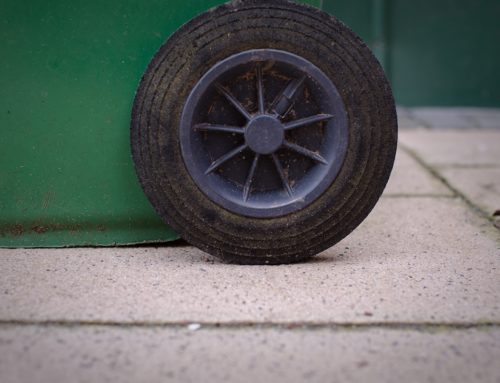by Peter Jones
7 minute read
On 18th June, Defra announced that English councils would no longer be able to charge householders to deposit DIY waste at household waste recycling centres (HWRCs). However, closer reading of the Government’s proposals shows that, while they will require many councils to change their charging policies, they are far from a complete ban – and that many uncertainties remain about what will and won’t be allowed.
The build up
The Government has been trying to stop English councils charging for DIY waste for nearly a decade. Previous efforts resulted in two pieces of secondary legislation in 2015 that barred councils from charging residents to enter a HWRC or to drop off household waste.
However, many councils read the Controlled Waste Regulations 2012 to mean that DIY waste should not be classed as household waste. The regulations say that “Waste from construction or demolition works, including preparatory works” is a type of industrial waste. Consequently, councils considered that the 2015 legislation didn’t apply to DIY waste.
The Government therefore consulted in April 2022 on proposals to clarify when waste from construction and demolition (C&D) at households should be classed as household waste. The Government’s stated aims in the changes it proposed were to remove differences in services between different English authorities, to provide householders with a convenient way to deal with small amounts of self-generated DIY waste and to reduce fly-tipping. Ministers have also linked the proposals to reducing the cost of living and “helping home improvers across the nation make their dream projects a reality”. The extent to which DIY waste from households contributes to fly-tipping is questionable, but it is certainly the case that the current rules give rise to inconsistencies across England, with some authorities asking substantial fees for a service that others offer free of charge.
Taking charge
After receiving a couple of thousand responses, and making some adjustments to its original proposals, in June 2023 the Government issued its response to consultation and announced its plans to “ban” charges for DIY waste.
The response to consultation explains that the Government proposes to change the Controlled Waste Regulations to define “DIY waste” as a type of C&D waste that is household waste. IIn order to qualify as DIY waste, C&D waste must meet certain criteria:
- It arises through the householder’s own activity
- It does not arise from activity that generates an income for the person carrying it out
- It does not exceed:
- two 50L rubble bags (or one bulky or fitted item no larger than 2,000mm by 750mm by 700mm) per visit; and
- four visits per household over a four-week period.
The change is due to be implemented during 2023, though no exact date has yet been given.
The first thing to note is that the Government is not banning councils from charging householders to deposit C&D-type waste but instead requiring them to allow a limited amount of such waste to be deposited free of charge. This will require some authorities to provide a more generous service than they do at present, but will also allow authorities that do not currently charge for DIY waste to begin doing so. There will be no “new burdens” funding because, in the Government’s view, authorities are already prohibited from charging for small quantities of DIY waste – so they are not being adversely affected by a change in law.
Amongst the authorities that will be affected are those that charge for every sack of rubble or large item of DIY waste (e.g. fence panels, doors, window frames, kitchen units) that they receive. Examples include:
- Dorset, which charges £1.50 per sack
- Oxfordshire, which charges £2 per sack
- Hampshire, which charges £3 per sack
- Buckinghamshire, which charges £3.50 per sack
- Kent charges, which charges £5 per sack, limited to 5 per day
These authorities typically have corresponding charges for other DIY waste items. While the size of sacks that authorities use as the basis for charging varies, it is generally much smaller than 50L.
Others affected will be those that allow only one sack or item free of charge, such as North Somerset, which charges £2 for each additional sack deposited on a visit.
Building control
The new rules are not going to be straightforward for authorities to enforce; and since it would be unlawful to apply rules more strictly than the Government allows, authorities might find themselves having to err on the side of generosity.
It will often be difficult to identify whether waste arose from the householder’s own work and not from a tradesperson leaving waste for the householder to manage. Staff at HWRCs could ask householders questions about how the waste arose, but it is likely that enforcing the boundaries will rely on applying the limits on volume, size and frequency.
That in itself will be tricky. The limits apply to households, so relying on monitoring car number plates or people’s names will not be sufficient, as households can have multiple members and vehicles. In any case, it would be necessary to track whether the person or vehicle had dropped off DIY waste, not just whether they had visited a HWRC. Effective monitoring might therefore involve recording the name, address, registration plate and volume deposited on each occasion when someone drops off DIY waste. That’s a lot more information than people are used to giving at the HWRC, and will require new systems to be put in place to facilitate collecting it – especially where an authority operates multiple HWRCs. Staff will clearly need training to apply the relevant rules and to handle potential disagreements with HWRC users who are unhappy about being charged.
Demolition job?
While the Government may have sought to bring clarity and consistency to the way that small quantities of DIY waste are handled at HWRCs, the new rules give rise to quite a few questions that may lead to differences of interpretation. A few that occur to me are:
- Do bags/items that you pay for count towards the monthly allowance? The new rules could be regarded as giving each household the right to dispose of 8 x 50L sacks of DIY waste free of charge each month; but the idea of the limit is to distinguish between minor DIY work and larger projects, so might paying for additional sacks be an indication that the householder isn’t actually disposing of waste arising from a small amount of DIY work?
- Is the limit based on sacks or litres? Can a householder dispose of 4 x 25L sacks instead of 2 x 50L? Or is it two sacks of whatever size?
- The response to consultation says that DIY waste is waste that arises at a householder’s “primary residence”. Does that mean it does not apply to waste from a second home?
- What is the status of waste generated by landlords undertaking work on rental properties? The consultation response says:
“The 2012 regulations classify waste from a domestic property used in the course of a business for the provision of self-catering accommodation as commercial waste. It would therefore be inconsistent with the 2012 regulations for waste from landlord’s renovation activities to be treated as household waste.”
This makes it clear that waste from a landlord’s renovation of a holiday let is not household waste, but it is less clear what the implications are for waste from renovation of a residential rental property.
- To drop off DIY waste in Central Bedfordshire you must first obtain a free permit – would this be lawful under the new rules? A permit-based approach would make it easier to monitor householders’ usage of the DIY waste allowance, and could also help to ensure that only waste from primary residences is accepted free of charge. Any householder could obtain a permit, so there’s no real restriction on using the service; but people would not be able to simply turn up and deposit DIY waste, which seems to be the Government’s goal.
- If DIY waste is a form of household waste, can it now be counted towards household waste recycling performance? Recycled rubble would not currently count towards household recycling performance in England, but if DIY waste is to be classed as household waste, does this change?
It is not clear whether the Government will be issuing guidance on how to apply the rules, but unless these uncertainties are addressed, it is likely that significant differences of interpretation and practice will remain, and the new rules will not fulfil the Government’s objectives.
Featured image: Djm-leighpark via Wikimedia Commons (CC BY-SA 4.0)







Thrilled to learn about the new rules on DIY waste at HWRCs. Responsible waste disposal is a vital step towards a cleaner environment. These changes make it even more convenient for individuals to contribute to sustainability. Let’s embrace these rules and keep our communities clean and green! ♻️🌿 #SustainableWasteManagement
Ben
https://dumpster-rentals.net/